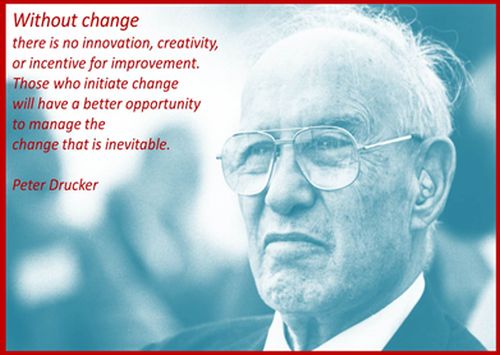Oct 14, 2025
Oct 14, 2025
I start with the same quote that I started with in the previous post with a different perspective.
“The purpose of business is to create and keep a customer;
Business has only two functions – Marketing and Innovation”
From Innovation viewpoint the message is simple. Marketing helps you to create customers and by way of innovation you retain them.
Entrepreneurship and innovation go hand in hand. According to Drucker, “Innovation is the specific instrument of entrepreneurship. It is the act that endows resources with a new capacity to create wealth.” The implication is that innovation does indeed create “resource”. In his words “there is no such thing as a resource till man finds some use for things found in nature. Until then, plants are just weeds and all minerals are just rocks”.
It is well understood that innovation essentially involves change or transformation for better. He advises leaders to slough off yesterday and thereby create tomorrow.

In the above collage Drucker’s view on the importance and primacy of change is evident. Two aspects of the quote are notable. The first is that Changes are inevitable. Changes are continuous and happen whether one wishes or not. The more important point is the phrase “those who initiate the change”. Such people or businesses control the change and thereby become market leaders or pioneers.
Innovations are essentially for better tomorrows and brighter futures. In this regard he says “long range planning does not deal with future decisions. But rather with future of present decisions. Focus need to be on exploiting opportunities and convert them into results. It is more productive than solving problems which only restores the equilibrium of yesterday”.
To bring about innovation there need to be firm commitment and proper focus. Plans are only good intentions unless they immediately degenerate into hard work. An innovation to be effective has got to be simple and has to be focussed. It should be focussed on specific need aimed at the specific result that is expected. Complexities can be confusing and may result in failure.
Innovations always involve certain amount of risk. Innovators should not try to avoid risk totally. In this regard his observation is “People who don’t take risks generally make about two mistakes a year. Those who take risks generally make about two mistakes a year”.
Finally how does one manage innovation? He says that innovation is to be managed like any other corporate function or business activity. There is however a difference. “Innovation is the work of knowing rather than doing”